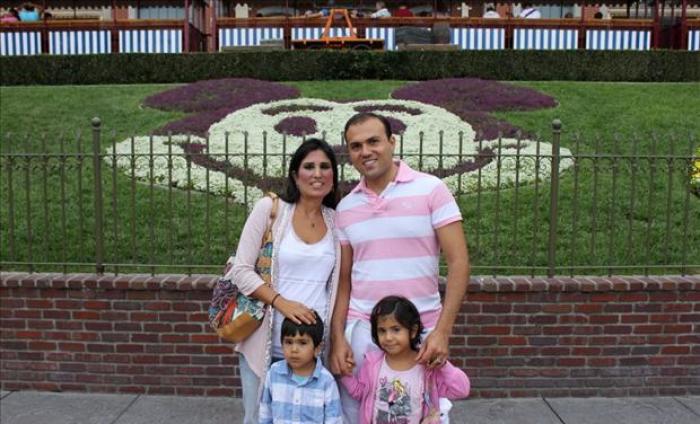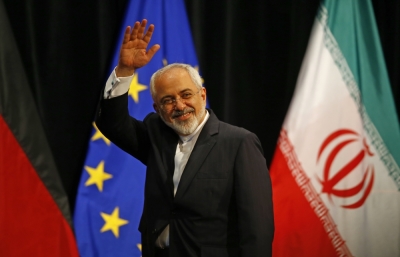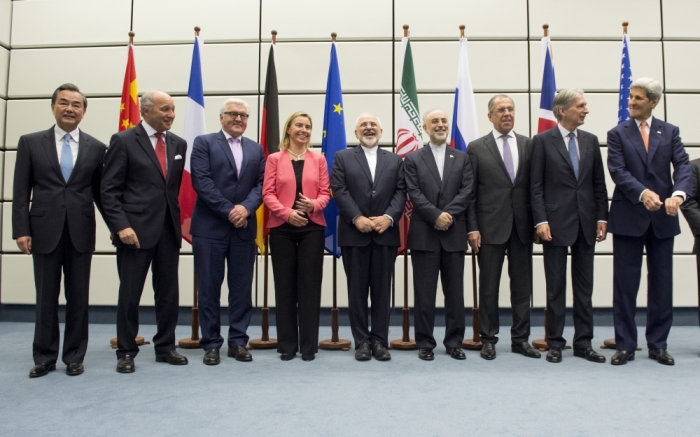Obama 'Broke Promise' to Pastor Saeed Abedini's Family With US-Iran Deal, Says ACLJ Petition Urging Congress to Reject Agreement

The American Center for Law and Justice and Naghmeh Abedini, the wife of imprisoned American pastor Saeed Abedini, have urged Congress to reject Tuesday's nuclear deal between the U.S. and Iran, which lifts economic sanctions from the Islamic Republic. The ACLJ noted that Obama had promised the Abedini family face-to-face that he would not forget the pastor and will bring him home.
"It is unconscionable that the Obama administration would sign a deal with Iran without securing the freedom of pastor Saeed who has been imprisoned for nearly three years simply because of his Christian faith," Jay Sekulow, chief counsel of the ACLJ, said in a statement when asked to comment on the deal by The Christian Post.
"President Obama told the Abedini family face-to-face that he considered the release of pastor Saeed a 'top priority.' How could that be a 'top priority' when a deal is reached and pastor Saeed is left behind? What happened today makes a bad deal even worse. We will now focus our attention on convincing Congress to reject this deal."
Although the U.S. and leaders from several other Western countries, including the U.K., France, Germany, Russia and China, finally agreed on a deal with Iran that lifts some sanctions in exchange for Iran limiting its nuclear activities, Congress would first have to have its say before the deal becomes reality.

The ACLJ and other watchdog organizations have warned that unless Iran shows that it is willing to improve its poor human rights record, it should not receive any sanctions relief.
The law group, which represents Abedini's family in the U.S., has been campaigning for years for the pastor's freedom. Abedini is serving an eight year sentence for his faith, and is just one of four Americans being held by Iran.
Back in January, Obama met Abedini's wife, Naghmeh, and the couple's two young children in Boise, Idaho, and promised that the pastor's release will be a top priority issue for him.
Naghmeh has said that she is deeply disappointed with news of the deal on Tuesday, however.
"With the announcement of a deal and yet silence as to the fate of Saeed and the other Americans held hostage in Iran, their fate lies now in the hands of Congress. I plead with each member of Congress to review the deal with our family at the forefront of their thoughts. Congress holds the key to bringing my husband home, to returning the father to my children," she said.
A new ACLJ petition is calling on Congress to reject the deal and make sure that Abedini and the three other imprisoned Americans in Iran are not left behind.
"He promised to make pastor Saeed's release a 'top priority.' Instead, this U.S. citizen is left to suffer beatings, torment, and excruciating pain in one of the world's worst prisons because he is a Christian," the petition states.
"The administration has committed diplomatic malpractice. It's unconscionable."
Obama has defended the deal by saying that it cuts off the pathway to a nuclear weapon for Iran.
"Today, after two years of negotiations, the United States, together with the international community, has achieved something that decades of animosity has not: a comprehensive long-term deal with Iran that will prevent it from obtaining a nuclear weapon," Obama said Tuesday.
Conservative group the Heritage Foundation has also slammed the deal, however, with President Jim DeMint stating:
"If allowed to stand, the Vienna agreement announced today will make the world a much more dangerous place. It completely fails to cut off Iran's path to nuclear weaponry. Indeed, it moves the world one step closer to a regional nuclear arms race and possibly a nuclear war.
"Under this deal, Iran's vast nuclear infrastructure remains largely intact. Moreover, the 'freeze' on uranium enrichment is both temporary and partial. That's not a freeze; it's a slight chill at best. Nor is there much assurance that Iran will abide by even these scaled back conditions. Tehran has a long and continuing history of violating UN-sanctioned restrictions on their nuclear and missile programs."
DeMint goes on to say that the deal would also give Iran significant economic bonuses, and could ramp up a conventional arms race in other countries in the region threatened by Iran's growing power.
"In sum, this agreement fails to achieve — even on paper — the fundamental national security goals identified earlier by the administration's negotiators. Instead of stopping Iran's drive to become a nuclear power, it puts the regime on a glide path to nuclear power status and the economic wherewithal to assure that it gets there," he added.
"Concurrently, it will fuel nuclear proliferation and further destabilization — compounding rather than alleviating an already toxic security environment."






























